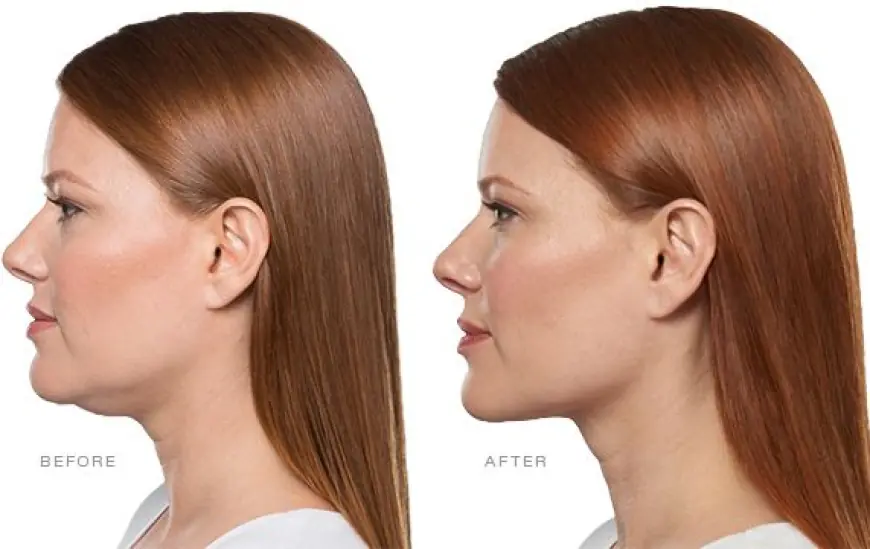What to Expect from Jaw Surgery: Procedure, Results & Recovery
Jaw surgery is a life-changing solution for people struggling with facial imbalance, bite issues, or jaw pain. It offers not only improved appearance but also better function and comfort in everyday life.

Jaw surgery is often the answer to many facial and functional problems caused by misaligned jaws. Whether you are dealing with an uneven bite, facial imbalance, or chronic pain, this surgical procedure can make a big difference. In Islamabad, jaw correction surgery is performed using modern techniques that ensure both safety and noticeable improvement.
If you're considering the treatment, here’s everything you need to know before making a decision.
Understanding Jaw Alignment Problems
Many people live with jaw problems for years without realizing the root cause. These issues can include:
-
A jaw that’s too far forward or backward
-
Difficulty closing the mouth properly
-
Trouble chewing or biting food
-
Speech problems caused by jaw position
-
Pain in the jaw joints or headaches
Often, these issues go beyond appearance. They affect daily life, comfort, and even long-term oral health.
How Jaw Surgery Works
Also known as orthognathic surgery, this procedure corrects the position of the jaw bones. The surgeon works on the upper jaw, lower jaw, or both, depending on the problem.
The process includes:
-
Making cuts inside the mouth to access the jawbone
-
Repositioning the jaw to the correct alignment
-
Using small plates and screws to hold the bones in place
-
Closing the incisions with dissolvable stitches
There are no visible scars, and the changes made are permanent.
If you're seeking expert care, you can trust jaw surgery in Islamabad performed at top facilities like Enfield Royal Clinic, where experienced surgeons ensure high standards of care.
The Step-by-Step Process
1. Evaluation and Planning
Your journey begins with a consultation. The surgeon checks your bite, takes X-rays and facial images, and discusses what changes are needed.
2. Pre-Surgical Braces (If Needed)
You may need to wear braces for a few months to align your teeth before surgery. This step ensures that your teeth will fit perfectly once the jaw is in its new position.
3. Surgical Procedure
The operation is done under general anesthesia. It usually takes 2 to 4 hours, depending on the complexity.
4. Recovery at Home
You’ll stay in the hospital for 1–2 days, followed by several weeks of healing at home. A soft diet and careful hygiene are key during this period.
5. Final Braces Adjustment (If Required)
After healing, some patients need final orthodontic adjustments for a perfect bite.
Results of Jaw Surgery
The benefits of this surgery are both cosmetic and functional. Here’s what patients typically experience after full recovery:
-
Balanced facial features
-
A proper bite and easier chewing
-
Clearer speech
-
Relief from jaw pain or clicking sounds
-
More comfortable breathing in some cases
-
A more symmetrical and attractive smile
Most patients also feel a boost in confidence, especially when the face becomes more balanced.
Healing and Recovery Timeline
Healing from jaw surgery takes time, but it’s manageable with the right care. Here’s a general timeline:
-
Week 1: Swelling, bruising, and limited mouth opening
-
Weeks 2–4: Soft diet and reduced physical activity
-
Months 2–3: Return to most normal routines
-
6 Months to 1 Year: Full bone healing and final results
Most swelling goes down in the first month, and you’ll see major improvements after about 6 weeks.
Tips for a Smooth Recovery
To speed up healing and avoid complications, follow these tips:
-
Stick to soft or blended foods for at least 2–3 weeks
-
Use ice packs to reduce swelling in the early days
-
Avoid hard chewing or contact sports during healing
-
Keep your mouth clean using the mouthwash prescribed
-
Attend all follow-up appointments
The more you stick to your recovery plan, the better and faster your results will be.
Is the Procedure Safe?
Jaw surgery is considered very safe when performed by experienced oral and maxillofacial surgeons. Possible risks include swelling, numbness, or infection, but these are rare and usually temporary.
To minimize risk, choose a reputable clinic with advanced facilities. In Islamabad, many patients prefer Enfield Royal Clinic for jaw correction due to its experienced team and modern techniques.
Who Is the Right Candidate?
You might be a suitable candidate for jaw surgery if:
-
Your upper and lower jaws do not align
-
You experience jaw pain or facial discomfort
-
You have breathing or speaking difficulties
-
Orthodontic treatment alone is not enough
-
You’re in good overall health and can undergo general anesthesia
A full evaluation by a professional will confirm whether surgery is necessary or not.
Why Choose Islamabad for Jaw Surgery?
Many people from across Pakistan come to Islamabad for their treatment because of:
-
Highly skilled surgeons with international experience
-
Affordable pack

ages compared to other cities
-
Advanced diagnostic tools and surgical techniques
-
Comfortable clinics offering full treatment support
At Enfield Royal Clinic, patients receive personalized care and trusted outcomes with every procedure.
Conclusion
Jaw surgery is a life-changing solution for people struggling with facial imbalance, bite issues, or jaw pain. It offers not only improved appearance but also better function and comfort in everyday life.
If you're considering this treatment, consult a qualified surgeon and explore trusted options like Enfield Royal Clinic in Islamabad. With expert care, a well-planned surgery, and a dedicated recovery process, you can enjoy the long-term benefits of a perfectly aligned jaw.
What's Your Reaction?
 Like
0
Like
0
 Dislike
0
Dislike
0
 Love
0
Love
0
 Funny
0
Funny
0
 Angry
0
Angry
0
 Sad
0
Sad
0
 Wow
0
Wow
0


















































